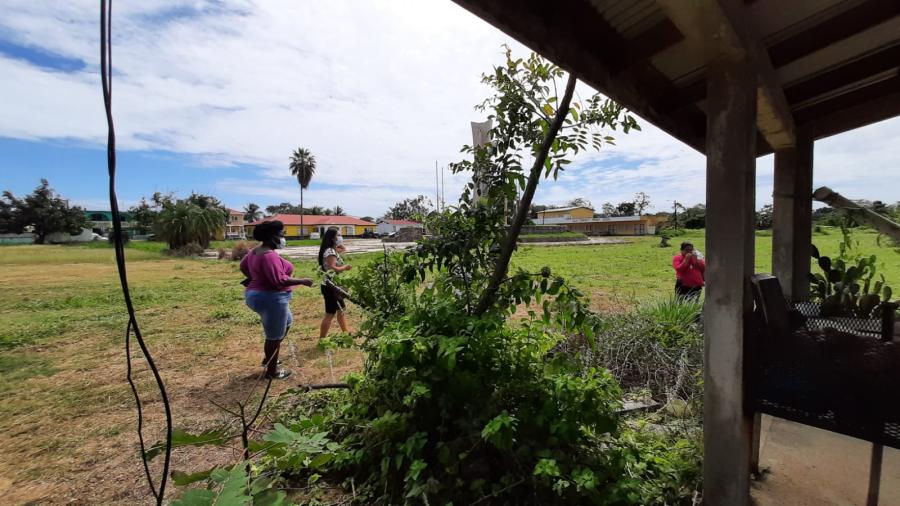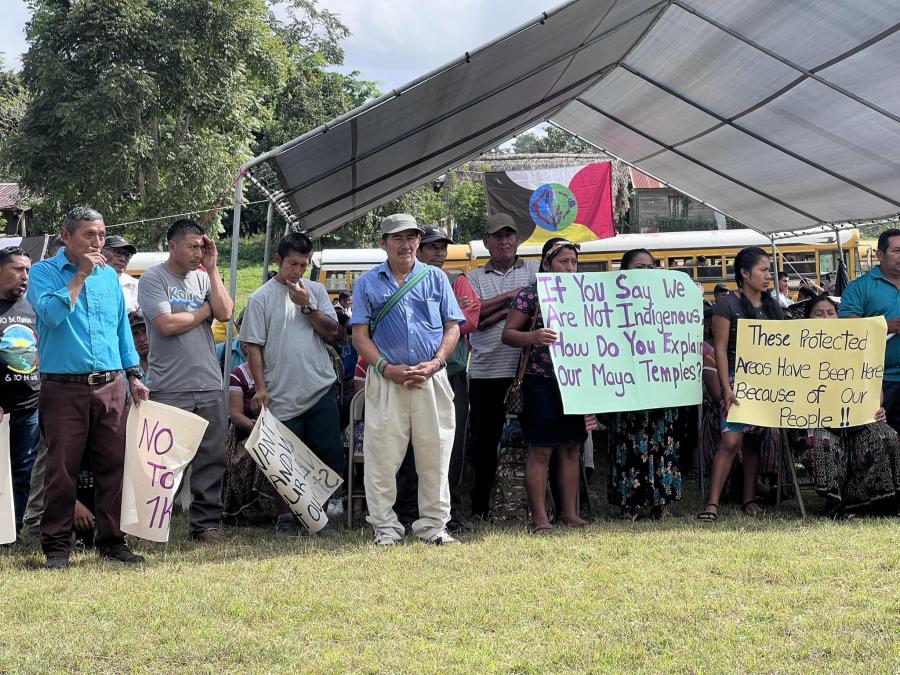
On November 29, 2022, the Caribbean Court of Justice heard arguments in the case Maya Leaders Alliance v The Attorney General of Belize regarding the compliance of the State of Belize with the court’s 2015 decision in favor of Maya land rights.
That landmark decision, issued in April 2015, affirmed that the Maya Peoples of Belize hold customary land rights over the land that they occupy, which is equal to any other form of land ownership in Belize and is constitutionally protected. The court affirmed, “Maya customary land tenure exists in the Maya villages in the Toledo District and gives rise to collective and individual property rights.”
The parties in this case entered into a Consent Order in which, among other things, the Government of Belize agreed to develop a legal mechanism through which to recognize the land rights of the Maya Peoples. However, in last week’s hearing, Leslie Mendez, counsel for the appellants, shared, “We are very concerned about the nonresponsiveness of the government and the inordinate delay in actually meeting and engaging in any meaningful dialogue.”
The appellants in this case include the Toledo Alcaldes Association (TAA) and the Maya Leaders Alliance (MLA). The TAA is a collection of traditionally elected leaders from each Maya village, and the Maya Leaders Alliance which provides the alcaldes (traditional leaders) with technical support and has spearheaded a campaign for the full recognition of the Maya as Indigenous Peoples in Belize. Their efforts have brought them to the Supreme Court of Belize several times, once in 2007 and again in 2010 after the government of Belize appealed a ruling that granted the Maya legal rights to their lands, and finally in 2015 to the highest court, the Caribbean Court of Justice. At all levels, the courts ruled in favor of Maya communities. (Read more: The Struggle to Implement Maya Land Rights in Belize, by Cristina Coc)
Today, over seven years later, implementation efforts continue to be delayed as the State fails to properly engage in good faith with the traditional authorities to establish even a basic roadmap for the implementation of the case. In February 2022, the Ministry of Indigenous Affairs embarked on a three-day consultation with some Maya villages and some NGOs that support its agenda to share the new protocol. However, it refused to engage with the traditional authorities. The State has also tried to back away from the concept of “consent,” replacing it with “consultation,” while establishing norms around protocols for engaging with the Maya Peoples, in violation of the established Indigenous rights standard of Free, Prior and Informed Consent.
Establishing mechanisms for upholding the Maya Peoples’ legal right to their lands and protocols for achieving their Free, Prior and Informed Consent is particularly urgent today, at a time of renewed interest by an American-owned oil company, US Capital Energy, which has long pursued drilling rights within the Maya Peoples’ territory.
Below we share a press release issued by the Maya Leaders Alliance regarding the November 29 hearing.
Wednesday, November 30th, 2022. Punta Gorda Town, Toledo, Belize
The Caribbean Court of Justice expressed its disappointment to hear that an important instrument, the FPIC Protocol, in implementing the Consent Order could be finalized by one Party (Government of Belize), be implemented (by the Government of Belize) and the other Party (Maya Leaders Alliance and Toledo Alcaldes Association) has not seen the final version. The Court reminded the Government of Belize that the international community is keeping its gaze on Belize as it implements the novel Consent Order agreed to by the Parties.
The Maya Leaders Alliance and Toledo Alcaldes Association has continuously reported to the CCJ that the Government of Belize has consistently failed to follow process and choose to march on with the implementation without consideration to the Maya Party. This approach cannot continue because it will not produce the vision of the Honourable Abdulai Conteh who in his 2010 Judgment on the Maya Land Rights stated, “I respectfully say that it is in the interest of all Belizeans that the process of reconciliation be engaged as soon as possible, so that an honourable settlement with the Maya can be achieved.”
We remind our Maya brothers and sisters to never forget that the only reason we still have access to our lands and resources was because we stood together in struggle for over thirty (30) years. We must listen keenly to the wisdom of the CCJ when it reminded us at today’s compliance hearing that all of the work on implementation does not arise from the government’s desire to do what is best for Belize and its people, it arises from litigation. The Government then must implement the Order in good faith, and in a spirit that respects the fact that implementation arises out of a Consent Order where there are litigants on the other side.
In our meetings, our conversations, and formal communications to the Government of Belize, we have consistently expressed to the Government of Belize our agreement with the Courts wisdom that Belize can “be a shining star, being a beacon for others” in how to truly embrace and protect Maya People, the Indigenous Peoples of Belize and all Belizeans. We remain committed to doing our part, as we again pledged before the Court. We owe it to each and every Maya person and our children’s children that Maya Land Rights is settled in compliance with the Consent Order, international law and the obligations that Belize has acceded to as a member of the global community to uphold human rights and the rights of Indigenous Peoples.
You can watch the compliance hearing in the Maya Leaders Alliance v The Attorney General of Belize – Maya Land Rights below.
Top photo: Harvesting corn in the milpa in Laguna. Photo by Tony Roth.


